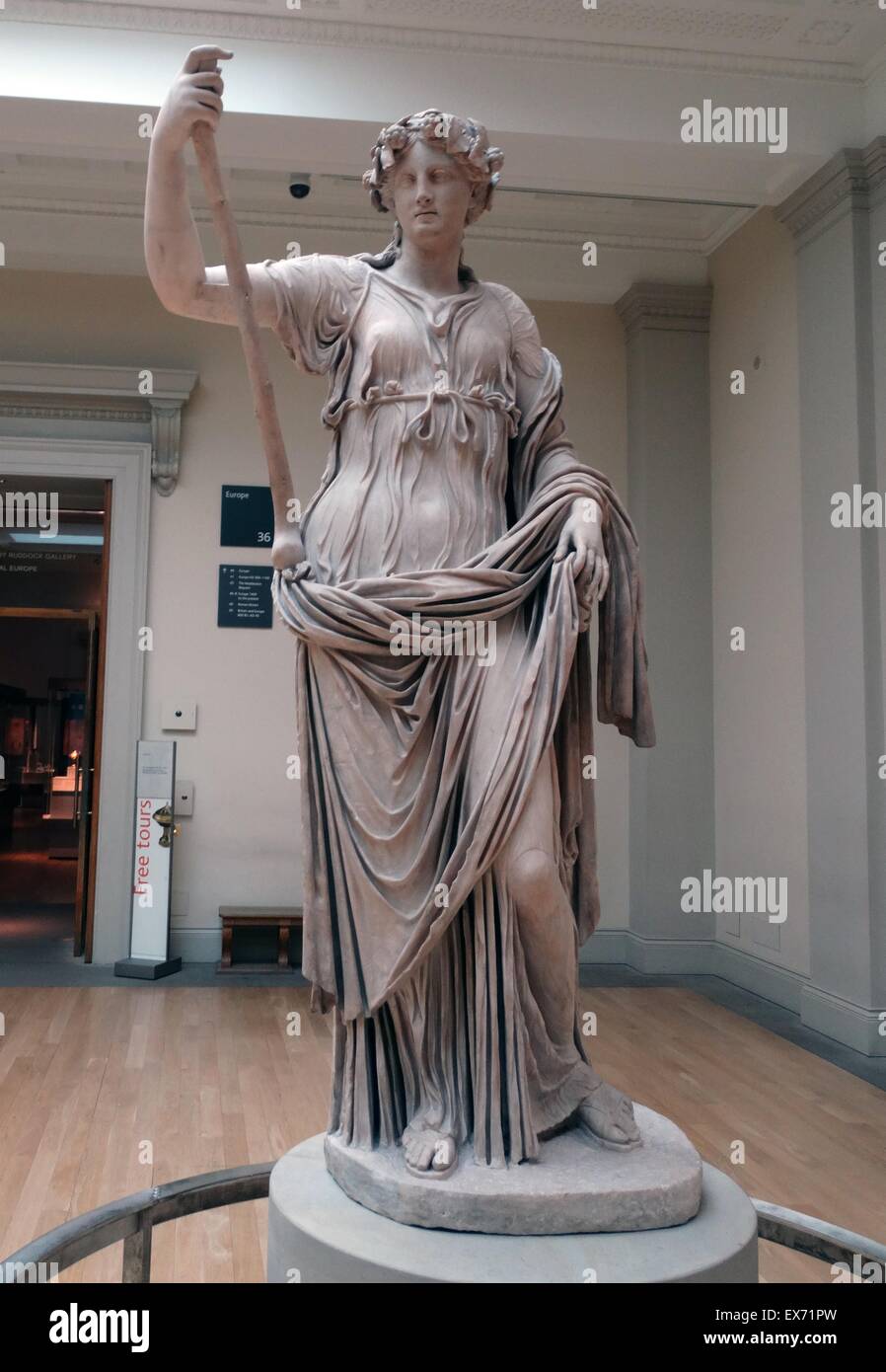

It was also during the Classical Age that the Muses were each assigned a literary sphere: Calliope the Muse of epic poetry, Clio the Muse of history, Euterpe the Muse of lyric poetry, Erato the Muse of love poetry, Melpomene the Muse of tragedy, Polyhymnia the Muse of hymns, Thalia the Muse of comedy, Urania the Muse of astronomy, and Terpsichore the Muse of dance and choral music. During the Classical Age, the number of Muses increased to nine. There were also originally only three Muses. In Archaic Greece, the Muses were simply goddesses associated with song and dance. In addition to dance, she has more recently been invoked as a metaphor for rhythm and ordered movement in the universe, such as mechanical oscillations. The Muse ruling dance and choral music was Terpsichore. Θάλεια is the Ancient Greek spelling of her name.In ancient Greece, nine goddesses were believed to rule over all the major literary and artistic spheres. Her name means "the joyous, the flourishing" in Ancient Greek. Thalia (first woman) alongside her sisters in Disney's Hercules. She is given a sassy, humorous, eccentric, yet very kind personality, adding much comic relief into the film, she has the deepest and most powerful singing voice of The Muses provided by Roz Ryan, singing much of the high and low notes within The Muses' songs. She is by far the most petite of The Muses with a thick, plump figure, her outfit is a cream Greek style dress, with a split revealing her left leg, with cream ballet pumps, she wears purple lipstick and plays the trumpet. Disney's Thalia is depicted as a Goddess with deep brown skin, dark brown hair worn in an updo, consisting of her hair tied into a ponytail, split into two, that sits on top of her head, instead of hanging low, she has wide dark brown eyes and takes on a Black African appearance like her sisters.

Even though, they live in Olympus, the muses are very in tune with the mortal realm, humble, friendly and driven to help humans, providing helpful advice and encouragement to them, such as with Meg, within the song, I Won't Say I'm In Love. During the movie, the goddesses also have the ability to manifest themselves as statues or paintings in the mortal realm, to interact with the humans when neccesary. Thalia is featured as a character in the Disney film, Hercules, alongside four other Muses, Melpomene, Calliope, Clio and Terpsicore, they are supporting characters and narrators in the movie, telling the stories of Hercules' life through songs.

Stories Skills and Abilities Relationships Symbols Names and Epithets Modern Depictions Disney Many of her statues also hold a bugle and a trumpet (both used to support the actors' voices in ancient comedy), or occasionally a shepherd's staff or a wreath of ivy. Thalia was depicted with the form of a youthful woman, with an ivy crown, wearing boots and holding a comic mask in her hand. She and her sisters were taught by their half-brother and leader, Apollo, God of the Sun, on Mount Olympus, who helped them develop their talents, according to Apollodorus, she and Apollo later had The Corybantes together. The group takes after their mother, being Goddesses of memory, knowledge and art. Thalia and her sisters were bore in only one day. Thalia is the eighth born of The Nine Muses, daughters of Zeus, King of the Gods and Mnemosyne, Titan Goddess of Memory. Role and Significance Genealogy and Family


 0 kommentar(er)
0 kommentar(er)
